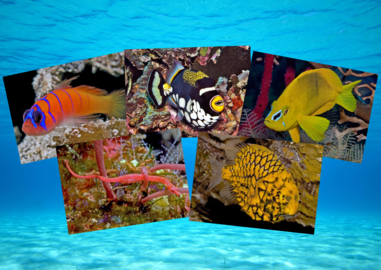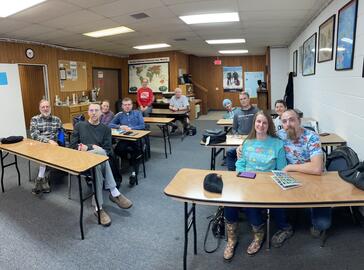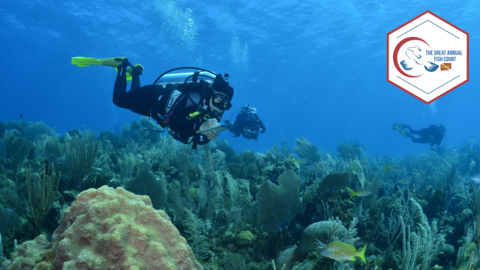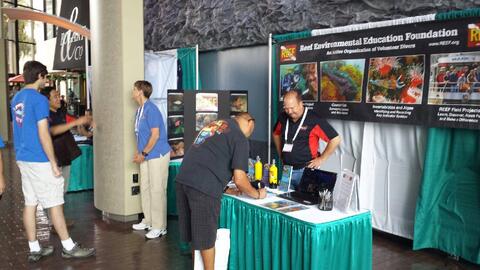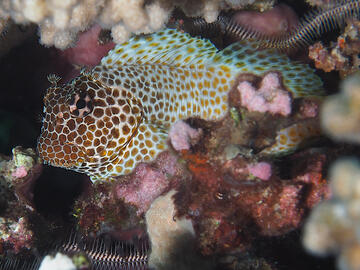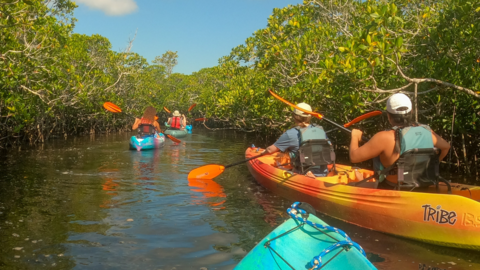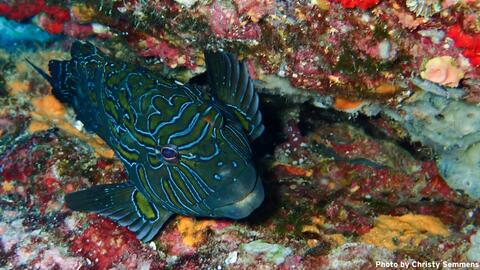Our annual summer donation match is here! Now through August 8, all gifts are doubled, dollar for dollar, up to $70,000! Will you support our citizen science, education, and research programs by donating today? You can make a donation securely online at www.REEF.org/donate. You can also donate over the phone by calling (305) 852-0030, or mail your donation to P.O. Box 370246, Key Largo, FL 33037. Your gift this summer will ensure that we can continue all of the great work shared in this newsletter.
We are excited to announce the REEF Ocean Ambassador Program, designed to support dedicated REEF members who actively engage and inspire others to become involved with REEF’s citizen science programs. REEF provides Ambassadors with resources to aid in their involvement, and these individuals make a lasting impact by connecting people in their communities to ocean conservation.
The Conservation Challenge is a fun way to earn collectible stickers while participating in marine conservation and citizen science. During the month of July, you can earn a Conservation Challenge sticker by participating in a Great Annual Fish Count event or by submitting a REEF survey anytime this month. The Great Annual Fish Count is a month-long initiative for divers and snorkelers to learn about marine life and get involved in citizen science. You can learn more and see GAFC events near you at www.fishcount.org.
REEF members are the heart of our grassroots marine conservation programs. A diverse community of divers, snorkelers, and ocean enthusiasts support our mission to conserve marine environments worldwide.
This month we highlight John Smajdek, a REEF member from California. He is an active surveyor in the Pacific Coast of the US and Canada (PAC) region, where he has conducted nearly 400 surveys, including many at local southern California dive sites. Thank you John, for being a dedicated and enthusiastic REEF member!
Education is a core part of REEF's marine conservation mission. From elementary school classes to adult travel groups, we offer programs for all ages and backgrounds through the REEF Ocean Explorers Education Program. Participants can join in both online and in person, and learn about topics like fish identification, citizen science, marine life behavior, invasive species, endangered species, sustainable fisheries, and Florida Keys ecology.
REEF Field Survey Trips are eco-vacations led by marine life experts. Each trip features daily dives and fish ID classes for both beginners and experienced surveyors. Divers, snorkelers, and families are all welcome. If you're looking for a trip this fall, there are still a few spaces remaining on our upcoming trip to the southern Sea of Cortez on Sept. 29-Oct. 6.
REEF Fest 2023 is on Oct. 19-22 in Key Largo, Florida, and we hope you can join us! We have plenty of exciting activities planned, including diving, snorkeling, kayaking, ocean seminars, and socials. A highlight of the weekend is the Saturday evening celebration, For the Love of the Sea. The event will take place on the evening of Oct. 21, at a beautiful waterfront location overlooking Florida Bay - the perfect backdrop for those beautiful Key Largo sunsets.
REEF online programs are free and open to everyone! Here's what's coming up this month:
REEF Into the Blue Book Club Meeting
Thursday, July 13, 8pm EDT
Click here to register.
REEF Into the Blue Book Club brings together readers who love the ocean. At this meeting, we will discuss our latest book selection, Monarchs of the Sea, The Extraordinary 500-Million-Year History of Cephalopods by Danna Staaf.
Our annual summer fundraising match is underway! Now through August 8, all donations to REEF are matched dollar for dollar, up to $70,000! You can make a donation securely online at www.REEF.org/donate. When you give to REEF, you are supporting citizen science, education, and research to protect the marine environment and connect people to our oceans. Don't miss out on this amazing opportunity to have our donation doubled!

